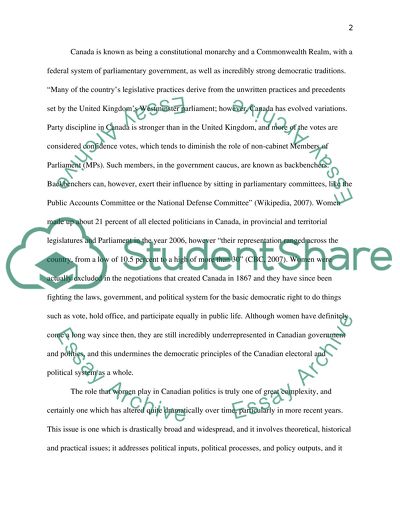Cite this document
(“Women in the Canadian Political System Essay Example | Topics and Well Written Essays - 2000 words”, n.d.)
Women in the Canadian Political System Essay Example | Topics and Well Written Essays - 2000 words. Retrieved from https://studentshare.org/miscellaneous/1499699-women-in-the-canadian-political-system
Women in the Canadian Political System Essay Example | Topics and Well Written Essays - 2000 words. Retrieved from https://studentshare.org/miscellaneous/1499699-women-in-the-canadian-political-system
(Women in the Canadian Political System Essay Example | Topics and Well Written Essays - 2000 Words)
Women in the Canadian Political System Essay Example | Topics and Well Written Essays - 2000 Words. https://studentshare.org/miscellaneous/1499699-women-in-the-canadian-political-system.
Women in the Canadian Political System Essay Example | Topics and Well Written Essays - 2000 Words. https://studentshare.org/miscellaneous/1499699-women-in-the-canadian-political-system.
“Women in the Canadian Political System Essay Example | Topics and Well Written Essays - 2000 Words”, n.d. https://studentshare.org/miscellaneous/1499699-women-in-the-canadian-political-system.


